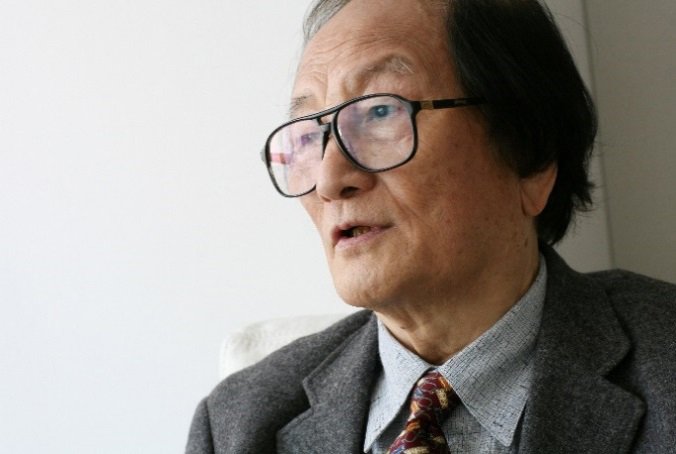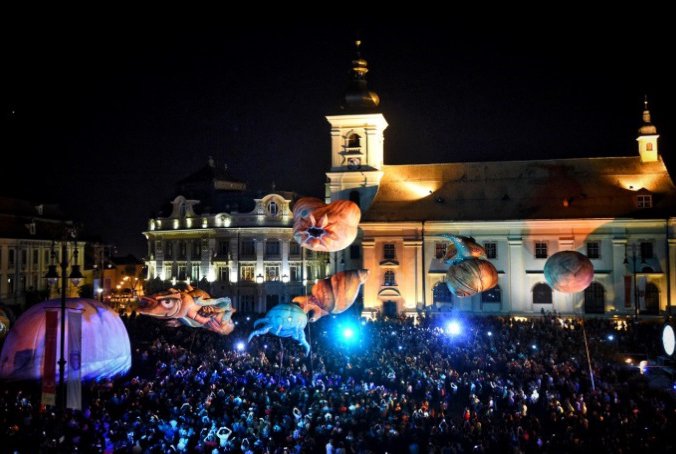The Japan Foundation Awards (2015)
- The Japan Foundation Awards
- The Japan Foundation Awards 2015 Commemorative Lectures
- The Japan Foundation Awards Recipients, Presentation Ceremony and Commemorative Events in Previous Years
Wang Yong (Professor/Director, Institute of East Asian Studies, Zhejiang Gongshang University) [China]

Wang Yong was a student of the “Ohira School” (precursor to the Beijing Center for Japanese Studies), established in 1980 for training Japanese language teachers in China by the Japan Foundation, in its fourth year. With his encounter with Japan and the Japanese language there, Wang has since spent half his life focused on the development of both Japan research in China and cultural exchange between Japan and China.
To date, Wang has written or edited over 44 works and published numerous academic papers both inside and outside of China, and has served in such roles as the Vice-President of China Japanese History Association and the Chinese Association for Japanese Studies. He has been a leader in China in the area of research into the history of Japanese Chinese cultural exchange, and several of his leading works have been published in Japan to wide acclaim.
Wang takes a unique viewpoint for his research. China currently promotes the “One Belt, One Road” (OBOR) framework that combines the Silk Road Economic Belt with the Maritime Silk Road, but Wang positioned the history of Japanese and Chinese cultural exchange within the Silk Road long before that framework was declared. His novel idea that the history of exchange between Japan and China that dates from ancient times was not only a flow in a single direction from China to Japan, but that it operated in a bidirectional manner between the two countries, such as the way silk was exported from Japan to China.
As the intellectual exchange via written materials between Japan and China is considered to be more notable than the exchange of silk, Wang has suggested the name of “Book Road” in following with the Silk Road. The “Book Road” blossomed through the exchange of envoys during the Nara and Heian periods, and continued until the Edo period with exchange in both directions, such as the reimporting of books lost in China from copies still extant in Japan. Another unique theory by Wang is his theory of Prince Shotoku that depicts that character on a grander scale within the East Asian world of the times by combining both his legendary and historical aspects.
While Wang’s academic activities have become global today, the role he played in promoting mutual international understanding by shining light on the overlooked history of cultural and academic exchange between Japan and China cannot be understated. The Japan Foundation Award is awarded to Wang Yong in with the hope that it may lead to further research on Japan in China, and to further and more vigorous cultural exchange between the two countries.
Isao Tomita (Composer) [Japan]

Isao Tomita has composed a diverse range of broadcast and commercial music, such as the theme songs for TV travel program Shin Nihon Kiko and TV anime series Kimba the White Lion.
Tomita, who sees his foundation as a composer to be the pursuit of the “reverberations of sound,” imported his own synthesizers in 1971, at a time when those instruments were expensive, and released records in which he performed famous classical works on synthesizer one after another. These works become hits throughout the world, including reaching number one on the classical charts of a famous record chart magazine in the U.S., garnering recognition for Tomita as an international artist.
Tomita’s method of creating not only the sounds, but performing and recording each orchestral part himself, became the model for the personal studio approach to music production that is the norm today, and this shows the immense influence that Tomita had on domestic and international artists and musicians across all genres.
The “Sound Cloud” performance, held along the Danube River in Austria in 1984 for an audience of 80,000 people, was a ground breaking event that realized the world of Tomita’s spectacle scale sound creations in an outdoor setting, not limited to recording. This was one of the first in a serious of performances held for enthusiastic audiences throughout the world, including along the Hudson River for the 100th anniversary of the Statue of Liberty. Thus, Tomita is clearly a passionate pioneer of timbres and tones who gives dimension form to sound.
In 1998, Tomita composed and conducted the “Tale of Genji, Symphonic Fantasy” combining traditional Japanese instruments with an orchestra and synthesizers in Tokyo, Los Angeles, and London.
More recently, the “Symphony Ihatov,” that portrays the world of Kenji Miyazawa, garnered attention by using Miku Hatsune, a “vocaloid” (virtual idol) with immense popularity among youth throughout the world, as a soloist. With the great success of the Beijing performance of the Symphony this past May at the request of the Chinese government, Tomita continues to make a major contribution to introducing Japanese culture and to international mutual understanding even at the age of 83. This Isao Tomita is awarded the Japan Foundation Award in recognition of his achievements and for the future prosperity of his endeavors.
Sibiu International Theatre Festival [Romania]

The historic city of Sibiu in Romania is known for its beautiful cityscape, most famously of all for the so-called “Sibiu Eyes,” an architectural style in which small windows are inserted into the attic rooms of some of the old houses to let in fresh air, giving the houses the appearance of having eyes in their roofs. But Sibiu is also famous as a city of theatrical culture, with many theaters already established in the city by the late 18th century. Sibiu also enjoys a deep connection with Japan, including a Sister City agreement which was concluded with the city of Takayama in 2012.
Tracing its inception back to the Sibiu Students’ Theatre Festival held in 1993, the Sibiu International Theatre Festival was inaugurated in 1994. As Sibiu has transformed itself into an international tourist city including its accreditation as a European Capital of Culture in 2007, the theater festival too has grown in scale, covering a 10-day period in June during which around 430 theater companies from over 70 countries take part. The festival is now considered as one of the most important theater festivals in Europe alongside of the Avignon Festival and Edinburgh Festival. The Sibiu International Theatre Festival is directed by actor Constantin Chiriac, who also serves as director of Radu Stanca National Theatre, the theatre at the heart of the festival. Late 2014 saw the inauguration of Klaus Iohannis as president of Romania having served 14 years as mayor of Sibiu, and the acsension of Iohannis has been a major fillip that has further boosted the success of the festival.
Since Theater Company 1980 was invited to the second edition of the festival in 1995, numerous theater groups, dance companies and personalities from Japan have been invited to take part including Hideki Noda, Mansai Nomura, Tokyo Theatre Company KAZE, Yamanote Jijosha, Seinendan, MODE, Roppongi Kingyo, and DAZZLE. By 2015, 73 Japanese companies and personalities attended the Sibiu International Theatre Festival. The festival has brought a wide range of Japanese works of performing art to western audiences, ranging from ancient art forms to modern drama, including the appearance of Nakamura Kanzaburo XVIII in a performance of Natsu Matsuri Naniwa Kagami by the Heisei Nakamura-za theatre company.
The festival has long provided a major boost to the internationalization of Japanese culture, and presented a performance of Kobo Abe’s play The Ghost is Here at Radu Stanca National Theatre, starring Constantin Chiriac and directed by Kazuyoshi Kushida this year.
The program for dispatching Japanese volunteers was first started by the EU-Japan Fest Japan Committee, the city of Takayama and other bodies from 2007 before being formally established as the Sibiu International Theatre Festival Volunteer Project in 2014, and since then the project has helped to promote international friendship between the cities.
In commemoration of the achievements of the festival and in anticipation of continued success still to come, we would like to bestow the Japan Foundation Award on the Sibiu International Theatre Festival.
[Contact Us]
The Japan Foundation Communication Center
Tel. +81-(0)3-5369-6075
- What We Do Top
- Arts and Cultural Exchange [Culture]
- Japanese-Language Education Overseas [Language]
- Japanese-Language Education Overseas [Language] Top
- Learn Japanese-language
- Teach Japanese-language
- Take Japanese-Language Test
- Know about Japanese-language education abroad
- The Japanese-Language Institute, Urawa
- The Japanese-Language Institute, Kansai
- Japanese-Language Programs for Foreign Specified Skilled Worker Candidates
- Japanese Language Education for Japanese Children Resident Overseas and for the Descendants of Migrants
- Archives
- Japanese Studies and Global Partnerships [Dialogue]
- JF digital collection
- Other Programs / Programs to Commemorate Exchange Year
- Awards and Prizes
- Publications
